Global Health Institute Scholars
The Global Health Institute Scholars program provides students with diverse opportunities to engage globally and explore the critical roles public health professionals play in various global health settings.
Summer 2025 Program Applications are now closed.
GHI Scholars Program
The Global Health Institute (GHI) Scholars Program prepares students for an increasingly interconnected world by offering transformative opportunities to build skills in:
- Service learning
- Cultural competence
- Global awareness
These experiences enable students to approach challenges from diverse perspectives and settings. As a GHI Scholar, you’ll have the chance to travel abroad, collaborate on research, and participate in community-engaged projects with leading academic institutions and organizations worldwide.
Program Requirements
Eligibility
- Students must be registered in the Spring semester before travel and during the Summer and/or Fall semester after travel.
- Proof of language proficiency may be required.
- Students must have a valid passport and any necessary travel visas.
Application Materials
- A Letter of Interest explaining your motivation for becoming a GHI Scholar.
- Letter(s) of Recommendation from a Faculty Advisor, Faculty Member, or Administrator (Faculty Advisor recommendations are preferred).
Internship and Credit Options
- If this experience satisfies internship requirements, students must:
- Work with their internship chair.
- Register and pay for internship units.
- Students may also participate in non-credit experiences.
Health & Safety
- Enroll in mandatory international health insurance.
Funding & Scholarships
GHI Scholars can access funding through various sources, including scholarships and funding support. While financial awards can help offset travel expenses, full coverage of costs is not guaranteed.
Deadlines
Some projects may have extended application deadlines.
Program and Scholarship applications open December 15th;
Priority Deadline is January 31st, Final Deadline is March 1st.
Global Health Institute Scholars have the unique opportunity to collaborate with MEZCOPH’s international partners, including a global network of academic health centers, community healthcare organizations, and NGOs.
Summer 2025 opportunities for students to engage in research, practicum and/or community engagement include:
The American University in Cairo (AUC)
A Longitudinal Study of Egyptian Health Aging (AL-SEHA)
Instituto Nacional de Salud Publica, México
Projects in Nutrition, Migration, HIV or related Public Health Issues and Initiatives
University of Technology Sydney, Australia
Exploring PrEP Use and Community Dynamics among Gay and Bisexual Men in Sydney and Berlin
Universidad Autónoma de Tamaulipas, Mexico
Evaluation of Pathogens and Heavy Metals in the Environment, Aquatic Fauna, and Fishing Communities on the Coast of Tamaulipas.
Facultad de Estudios Superiores Zaragoza, Universidad Nacional Autonoma de Mexico (FES Zaragozo, UNAM); Mexico City
Public health and health promotion.
University of Limerick, Ireland
Health Inequalities: Tackling Social Determinants of Health Challenges through Social Justice in Education.
Universidad del Valle de Guatemala
Water Quality in the Lake Atitlán Watershed
North-West University, South Africa
Projects in pyschosocial research, occupational hygiene and health research, transdisciplinary health research, and community nutrition
Escuela Superior Politécnica del Litoral (ESPOL), Ecuador
Accumulation of metals in aquatic organisms and its implications on humans in Santa Cruz, Galapagos - Ecuador
2025 GHI Scholars
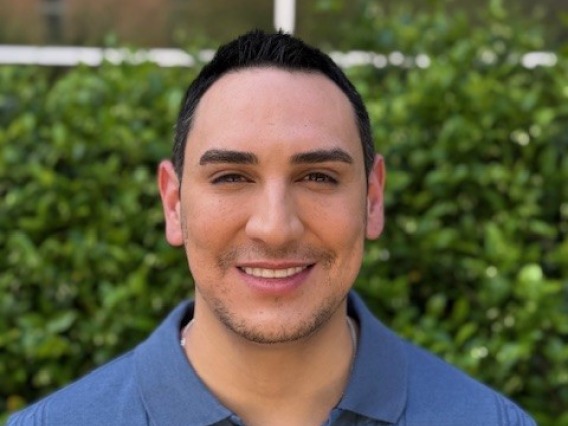
"Working with researchers and our global partners in Sydney will allow me to study HIV prevention in a new context and learn directly from communities who have approached these challenges differently. I plan to bring those insights home with me and apply them to my public health work here in Arizona."
Program of Study: MPH Health Behavior & Health Promotion
Site: University of Technology Sydney
Research Title: Exploring PrEP Use and Community Dynamics among Gay and Bisexual Men in Sydney and Berlin
Funding: RISE
Bio: Originally from Nogales, Arizona, Joseph has called Tucson home for over a decade. He earned his bachelor’s degree in 2017 from the University of Arizona, triple-majoring in Neuroscience & Cognitive Science, Psychology, and Molecular & Cellular Biology. After graduation, he worked as a medical scribe at El Rio Community Health Center, which serves medically underserved communities in Pima County. He went on to earn master’s degrees in Physiological Sciences, Legal Studies, and Educational Leadership. Despite his broad academic background, Joseph’s passion lies in advancing HIV prevention and care for the LGBTQAI+ community. Through his involvement with local organizations, he has worked to reduce HIV-related stigma, correct misinformation, strengthen support systems within the LGBTQAI+ community, and empower individuals to take control of their sexual health. Joseph is currently pursuing his MPH in Health Behavior & Health Promotion to continue advocating for the medical, psychosocial, psychosexual, and legal needs of LGBTQAI+ people.
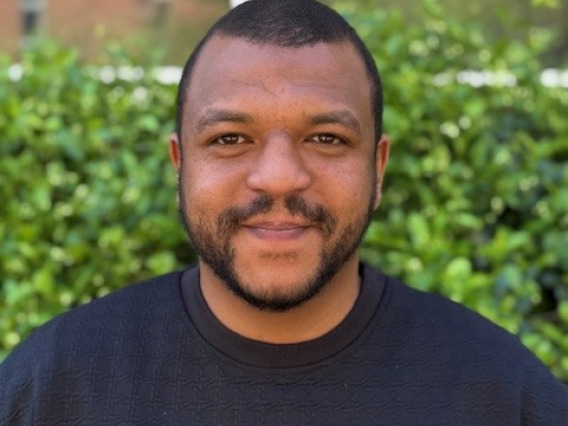
"I am honored to be a part of the GHI Scholars program and excited to contribute to the AL-SEHA study on healthy aging in Egypt this summer. This opportunity will allow me to engage directly in longitudinal research, explore aging-related health challenges in a global context, and gain valuable insight into the intersection of public health, culture, and environment. I look forward to learning from local experts, connecting with communities, and strengthening my skills as a future public health professional. I am deeply grateful for this incredible experience and to everyone who made it possible."
Program of Study: PhD Environmental Sciences
Site: The American University in Cairo, Egypt
Research Title: AL-SEHA ( A longitudinal study of Egyptian Healthy Aging)
Funding: RISE
Bio: Jumah Alkhaibari is a second-year PhD student in the Environmental Health Sciences program. He holds a bachelor’s degree in Medical Laboratory Technology (MLT) and a Master of Public Health (MPH), with hands-on experience at the King Hussein Cancer Center in Jordan and the Leon County Health Department in Florida. His research interests include environmental health, epidemiology, health disparities, and community well-being. His academic and professional journey has fueled his passion for advancing health equity, and he looks forward to applying his skills in global public health settings and collaborating with interdisciplinary teams to support evidence-based solutions.
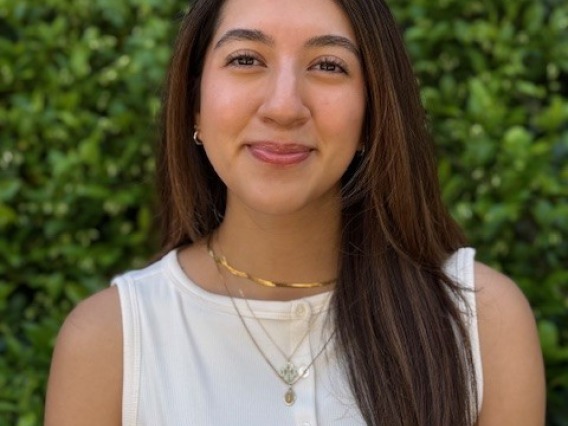
"I am beyond excited for this opportunity as a Global Health Institute Scholar, I look forward to engaging with rural communities and interacting with global health professionals during this experience in South Africa!"
Program of Study: Accelerated BS & MPH in Global Health
Site: North-West University, South Africa
Research Title: Impact of a Community-Specific, Peer-to-Peer Nutrition Education Program on Infant and Young Child Food Safety and Security Awareness
Funding: Kent Campbell Scholarship Fund
Bio: Anahy is a first-generation college student, working towards a Master of Public Health within the Accelerated BS & MPH in Global Health program at MEZCOPH. Anahy graduated in December 2024, receiving a Bachelor in Science in Public Health and a minor in Spanish. On campus, Anahy is involved with the Thrive Center and its Financial Wellness initiative in supporting students through a holistic approach. She has also worked to develop culturally sensitive and meaningful digital content for marginalized communities. Recently, Anahy has been involved with the National CMV Foundation and the Association of Black Cardiologists – further fueling passions in minority health.
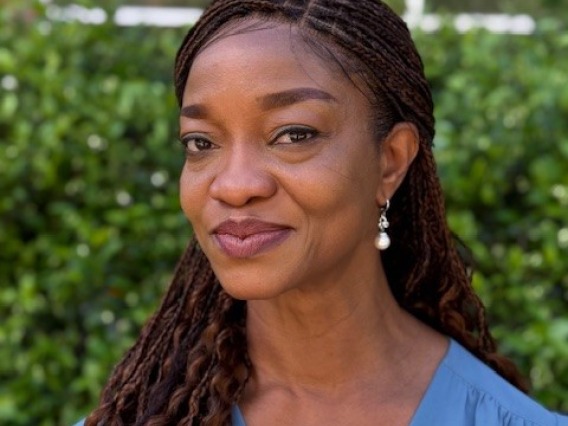
"I’m excited to join the GHI Scholars Program in Ireland, a wonderful opportunity to strengthen my commitment to health equity through community-centered engagement and global collaboration with passionate peers and mentors."
Program of Study: PhD Health Behavior Health Promotion
Site: University of Limerick, Ireland
Research Title: Tackling Social Determinants of Health Challenges through Social Justice in Education
Funding: RISE
Bio: Oluchi Kanma-Okafor is a public health physician, researcher, and PhD student in Health Behavior and Health Promotion at the University of Arizona. With over a decade of academic and clinical experience, she has led and contributed to research on infectious diseases, maternal and child health, and health disparities in low-resource settings. A Harvard-trained clinical researcher and award-winning scholar, Oluchi is passionate about addressing health disparities and advancing health equity through data-driven policy and community-based interventions and education. She serves as a lecturer, teaching associate, and global health advocate, with numerous peer-reviewed publications and active roles in international research collaborations.
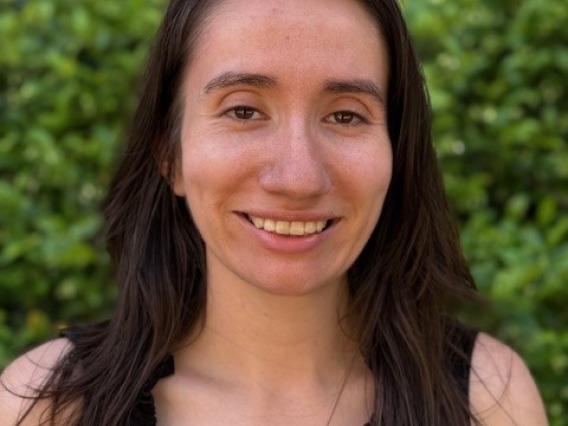
"I am grateful and excited for this opportunity to work with our local collaborators within Guatemala to further research that is localized, impactful and important for the future of water quality within Guatemala."
Program of Study: MPH, Climate Change and Health
Site: Universidad del Valle de Guatemala
Research Title: Water Quality in the Lake Atitlan Area: Understanding the Health Implications, Community Engagement and Connection to Climate Change
Funding: Kent Campbell Scholarship Fund; RISE
Bio: Kendra Martinez is an MPH student in the Climate Change and Health concentration here at the University of Arizona, with research interests at the intersection of climate change adaptation, mitigation, and community health. With a background in community engagement and a passion for understanding how to help communities amidst changing conditions, Kendra is excited to be able to contribute to this work in Guatemala and appreciates this opportunity.
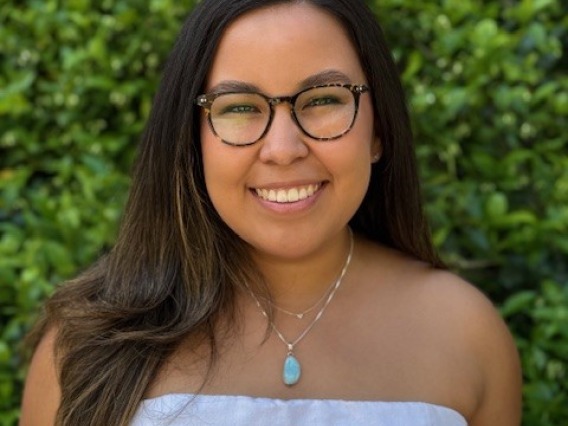
"I am incredibly excited to work on this project with UNAM. This opportunity will allow me to deepen my understanding of public health in a global context, collaborate with fellow students in Ciudad de México, and learn directly from the communities we aim to serve. It will allow me to apply my knowledge in a real-world context and gain valuable insight. This experience will also fulfill a long-standing personal and academic goal of learning from and contributing to public health efforts in México."
Program of Study: MPH Global Health
Site: Facultad de Estudios Superiores Zaragoza, Universidad Nacional Autónoma de México (FES Zaragoza, UNAM); México City
Research Title: Public Health and Health Promotion
Funding: RISE
Bio: Danitza graduated with her Bachelor of Science in Public Health and Bachelor of Arts in Spanish from the University of Arizona in 2024. Growing up in the U.S.-México border, Danitza’s experiences have fueled her passion for health equity, access to care, and culturally responsive public health practices. She is now a first-year Master of Public Health student with a concentration in Global Health at MEZCOPH. Danitza currently works as a Graduate Research Assistant and as a Case Investigator, where she has gained meaningful, hands-on experience in community-based research, data collection, and implementation, further solidifying her dedication to improving health outcomes in underserved populations.
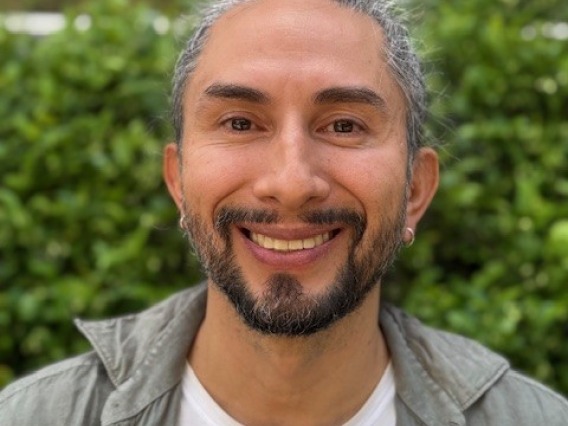
"Embarking on the Youth360 Project at North-West University represents a unique chance to weave together my passion for evidence-based health promotion, community engagement, and data-driven insights. By championing poverty alleviation, expanding education access, and improving public health, I aim to help empower youth to thrive as catalysts of meaningful, sustainable change."
Program of Study: PhD Health Behavior Health Promotion
Site: North-West University, South Africa
Research Title: Empowering Youth Through Poverty Alleviation, Education Access, and Health Promotion. North-West University, South Africa.
Funding: RISE
Bio: Mario Morales is a Ph.D. student in Health Behavior and Health Promotion at the University of Arizona. His research covers the complex intersection of dating violence and substance use prevention among adolescents. Over the last three years, Mario has served as an analyst at the Arizona Research Prevention Center, where he worked on projects aimed at preventing chronic diseases among adults living on the US-Mexico border. Additionally, he employs computational techniques to explore the soaring popularity of Latin Urban Music. His interdisciplinary academic background—spanning anthropology, demography, political science, and public health—enriches his data-driven research approach.

"I am truly grateful for the opportunity to join the Global Health Institute Scholars Program and am eager to explore my research goals in an intercultural setting at North-West University in South Africa. This experience will be invaluable in shaping both my personal and professional growth, offering me a deeper understanding of global health issues and enhancing my ability to contribute meaningfully to the field of community nutrition."
Program of Study: BS Public Health, Emphasis in Global Health, Minor in Spanish
Site: North-West University, South Africa
Research Title: BSc Dietetics Community Nutrition Practice Internship
Funding: RISE
Bio: Juliana is a third-year undergraduate student in Public Health at the Mel and Enid Zuckerman College of Public Health. She currently pursues research in the field of transportation equity, examining the intersections between accessible infrastructure and public health outcomes. Juliana also works as a Case Investigator with MEZCOPH’s SAFER team, collaborating with local Arizona county health departments to investigate notifiable disease proliferation within her local community. Juliana is passionate about community-led global health initiatives as sustainable, long-term solutions that empower at-risk communities.
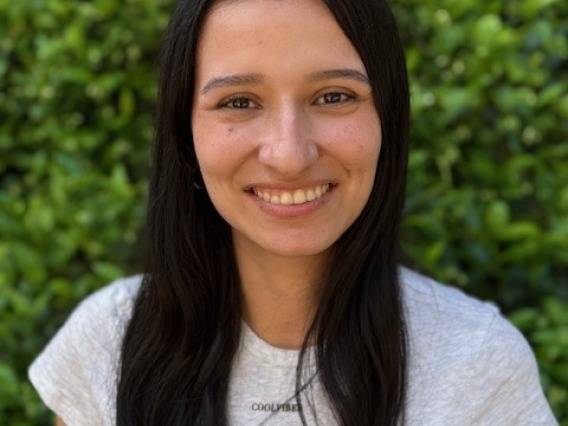
"I am excited to begin my project and work in one of my favorite places in the world, the Galápagos Islands. This opportunity will allow me to contribute to identifying strategies to mitigate health risks in Ecuador while enhancing my professional development as a researcher."
Program of Study: MS Environmental Health Science
Site: Escuela Superior Politécnica del Litoral (ESPOL), Ecuador
Research Title: Evaluation of health risks from toxic metals in seafood species from the Galápagos Islands and Guayaquil, Ecuador
Funding: RISE
Bio: Juliana is a first-year MS student in Environmental Health Sciences and a research assistant with the One Health Research Initiative at the University of Arizona. She earned her Bachelor of Science (BS) in Biology from Escuela Superior Politécnica del Litoral (ESPOL) in Ecuador. Before starting her master’s program, she worked on projects related to environmental pollution, focusing on the impacts of microplastics in Ecuadorian mangrove forests. Juliana’s research goals are to address pollution challenges and contribute to public health improvements in Ecuador.
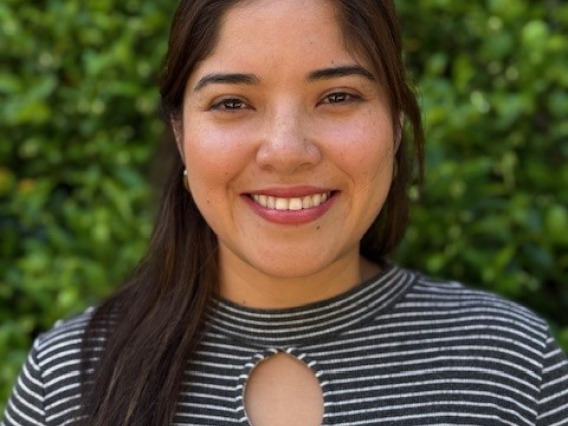
"I am privileged to be involved in the first-ever collaboration with North-West University’s Africa Unit for Transdisciplinary Health Research. This important opportunity presents a chance for me to contribute to strengthening South Africa's public health system, focusing on leadership capacity and network development. Furthermore, as a GHI scholar, I will return valuable insights from this experience, enriching our institution's global perspective."
Program of Study: MPH Global Health
Site: North-West University, South Africa
Research Title: North-West Department of Health: Systems Leadership Development
Programme.
Funding: RISE
Bio: Cheryl Valdez is a first-year Master of Public Health (MPH) student specializing in Global Health at MEZCOPH. She also serves as a graduate teaching assistant in the Health Promotion Science department at the University of Arizona. Cheryl has experience working with the International Rescue Committee, supporting refugee health and wellness. After the COVID-19 pandemic, she expanded her global health experience as a U.S. Peace Corps volunteer in Togo, West Africa, where she collaborated with the Ministry of Health on community-based health projects in rural communities. Her interests include strengthening public health systems, advancing global health diplomacy, and transdisciplinary health research.
2024 GHI Scholars
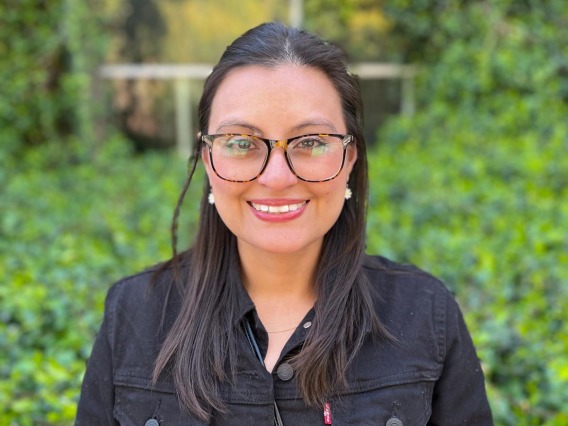
"I look forward to starting this research experience to help promote rapport with indigenous communities in Lake Atitlán and build research capacity in Guatemala."
Program of Study: PhD, Environmental Health Sciences
Site: Universidad del Valle de Guatemala
Research Title: Exposure to toxic metal(loid)s and microbial pathogens via drinking water in communities of the Lake Atitlán watershed, Guatemala
Funding: Kent Campbell Scholarship Fund
Bio: Yunuen Soto is a biochemist and microbiologist from Guatemala. She is currently a first-year PhD student in Environmental Health Sciences at MEZCOPH and a faculty member at the Universidad del Valle de Guatemala. Her research interests focus on the exposure to chemical and microbiological contaminants in drinking water and their potential health effects, as well as promoting access to clean and safe water. Her vision is to advance environmental health research in Guatemala, build technical capacity, and collaborate with local communities to improve environmental quality and human health.
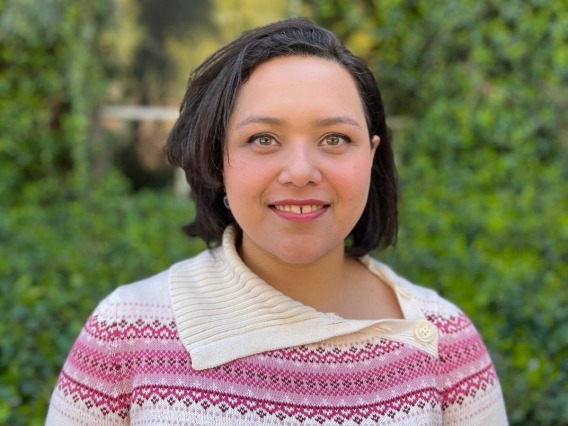
"I have been working with the aging population for the last few years and am excited to observe and learn how cognitive health and aging research is conducted in a population and research setting entirely different from the US."
Program of Study: PhD Epidemiology
Site: The American University in Cairo, Egypt
Research Title: AL-SEHA ( A longitudinal study of Egyptian Healthy Aging)
Funding: Zuckerman Family Fund
Bio: Azmat is a first-year PhD student in Epidemiology at MEZCOPH. He works in the Healthy Aging research lab, which is currently focused on a project to determine patterns of healthy cognitive aging in older adults and compare them to individuals with neurodegenerative diseases. Before joining the doctoral program at the University of Arizona, Azmat worked at an independent living facility for older adults. There, he collaborated with the administration to implement resident well-being initiatives.
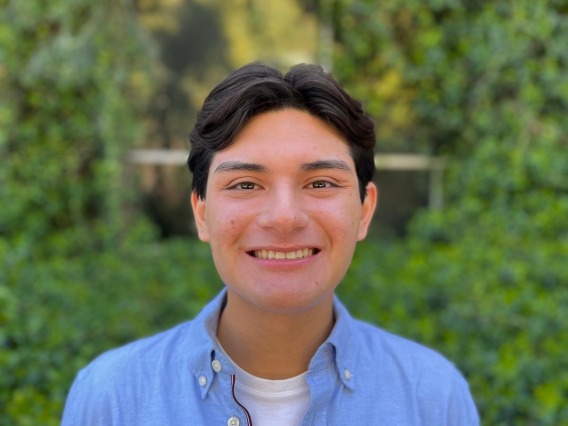
"To say that I am honored to be a Global Health Institute Scholar is an understatement. I eagerly anticipate participating in vital research endeavors and am grateful for the opportunity to broaden my understanding and perspectives on public health."
Program of Study: MPH Global Health
Site: University of Technology Sydney
Research Title: Stroke Survivorship and self-care
Funding: GHI Scholars Fund
Bio: Cutberto is a first-year Master of Public Health (MPH) student concentrating in Global Health at MEZCOPH. He earned his Bachelor of Arts (BA) in Spanish and Bachelor of Science in Health Sciences (BSHS) in Physiology and Medical Sciences from the University of Arizona in 2023. Hailing from Yuma, AZ, Cutberto has experienced the intercultural exchange between the United States and Mexico and witnessed the impact healthcare has on transcending borders. His research interests include healthcare disparities among Hispanic and underserved populations. He is passionate about addressing public health concerns from a global perspective and being of service to the world.
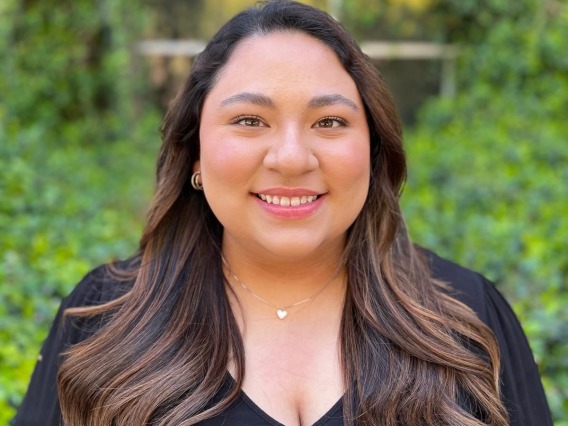
"I am excited to learn and gain hands-on experience while immersing myself in a different public health setting and healthcare system. I am immensely grateful for this opportunity and believe it will contribute significantly to my personal growth and development as a future public health professional."
Program of Study: MPH Global Health
Site: Facultad de Estudios Superiores Zaragoza, Universidad Nacional Autónoma de México (FES Zaragoza, UNAM); México City
Research Title: UNAM FES Zaragoza Health Promotion and Education
Funding: RISE
Bio: Erika is a first-year student in the Master of Public Health (MPH) program at the UArizona MEZCOPH, focusing on Global Health. She earned her Bachelor of Science in Health Care Administration with minors in Business Management and Communications from Grand Canyon University in 2021. Before starting her master’s program, Erika worked as a financial representative at Banner Health in the health administration sector. She is passionate about border health, child and maternal health, health promotion, and mental health, and hopes to deepen her understanding of global awareness in various settings.

"I am deeply honored to join the GIH Scholars program, embarking on a journey to work within my home country. This opportunity will enable me to engage in critical research that will provide essential information for future interventions, benefiting underserved communities. As a future public health professional, I believe that reducing existing health disparities, especially in vulnerable areas, is one of the most significant contributions one can make."
Program of Study: MS, Environmental Health Sciences
Site: Escuela Superior Politécnica del Litoral (ESPOL), Ecuador
Research Title: Accumulation of metals in aquatic organisms and its implications on humans in Guayaquil - Ecuador
Funding: Kent Campbell Scholarship Fund
Bio: Karla is a first-year graduate from Ecuador pursuing a Master of Environmental Health Sciences (EHS) degree at the University of Arizona. Currently, she works as a research assistant in the One Health research laboratory. Karla received her Bachelor of Science in Chemical Engineering from Escuela Superior Politécnica del Litoral (ESPOL) in 2023. Before starting her master's program, she volunteered for an Ecuadorian mangrove forest project focusing on toxicological areas. Her main focus is on exploring rural health and contributing to the development of health policies in her home country and globally.
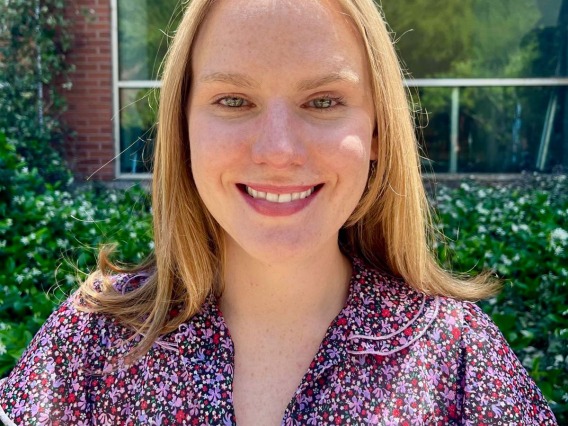
"I am beyond grateful for the opportunity to contribute to meaningful research in Ireland! I am particularly excited to experience living in the homeland of many of my ancestors (my great-great grandmother was born in Limerick!), and am confident that learning and conducting research in a new country will greatly enhance my professional development and broaden my understanding of health challenges and opportunities worldwide. I am deeply appreciative to those who have made this incredible opportunity possible for me."
Program of Study: PhD, Biostatistics
Site: University of Limerick, Ireland
Research Title: INSIGHT-GP: Inquiry iNto ServIce usage, Gerontological Health and MulTi- Morbidity in GP (General Practice)
Funding: GHI Scholars Fund
Bio: Katie is a PhD student in Biostatistics at the Mel and Enid Zuckerman College of Public Health and serves as a graduate research associate with the University of Arizona Health Sciences Comprehensive Center for Pain and Addiction. She completed her Master of Public Health with a concentration in biostatistics at the University of Arizona before pursuing her PhD. Prior to her graduate studies, Katie served as a U.S. Peace Corps volunteer in the Dominican Republic, following her graduation with a bachelor's degree in Psychology from the University of California, Santa Cruz.
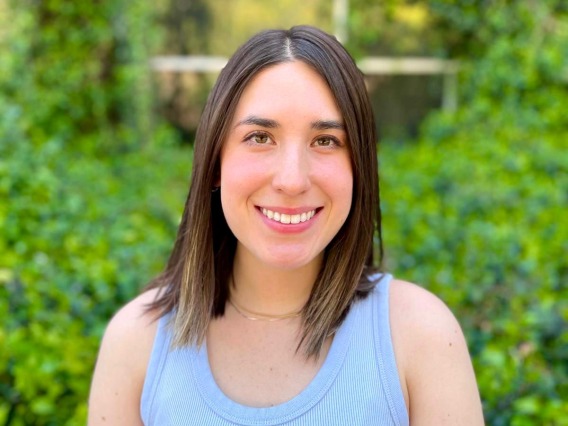
"My career goal is to be involved in One Health research, whether in the lab, in the field, or in the classroom. I feel fortunate to have the opportunity to gain global health experience and knowledge to investigate One Health in the community of La Pesca, Tamaulipas."
Program of Study: PhD Environmental Health Sciences
Site: Universidad Autónoma de Tamaulipas, Mexico
Research Title: Evaluation of pesticides, heavy metals and pathogens in human, animal, and aquatic environments on the coast of Tamaulipas, Mexico.
Funding: GHI Scholars Fund
Bio: Priscilla is a first-year PhD student in the Environmental Health Sciences program. She holds a BS in Molecular and Cellular Biology and an MPH with an emphasis in One Health. During her master’s program, she worked with Dr. Kerry Cooper, studying the relevance of Campylobacter as a food-borne outbreak pathogen using whole genome sequencing. After graduation, she worked for three years as a research technician in a microbiology laboratory focused on public health projects. Priscilla’s research goals include addressing One Health issues by utilizing microbiological techniques and studying the interactions among human, animal, water, and environmental contaminants to understand how these interactions affect the prevalence of One Health issues.
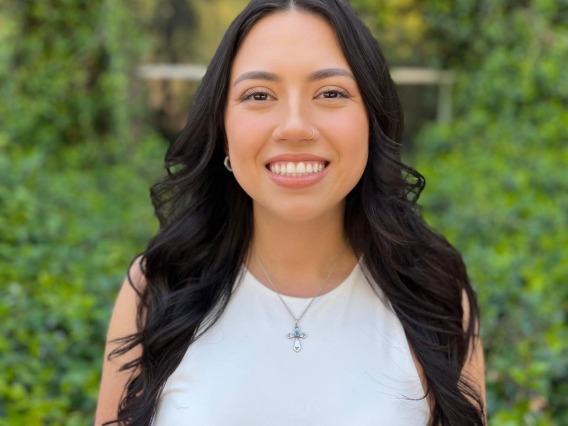
"I am eager to immerse myself in this opportunity! Since completing my undergraduate studies, I have dedicated myself to helping refugee minors on this side of the border. This research opportunity will allow me to assist them even closer to their homes!"
Program of Study: MPH Maternal and Child Health
Site: Instituto Nacional de Salud Publica, México
Research Title: Development and Implementation of a Comprehensive Public Health Curriculum Tailored to the Unique Needs of Migrants at Albergue Diocesano 'Belén' in Tapachula, Chiapas
Funding: RISE
Bio: In 2019, Sabrina graduated from the University of Arizona with a Bachelor of Science in Public Health and a minor in Spanish. Since then, she has dedicated herself to supporting refugee minors as a case manager within the Office of Refugee Resettlement. Her role involves aiding minors from various parts of the world who have faced perilous journeys to the US. This meaningful work has ignited her interest in pursuing a Master of Public Health. Currently in her first year, Sabrina is looking forward to her summer Applied Practice Experience (APE). She hopes this research opportunity will enable her to directly assist minors at the Guatemalan border, addressing any public health issues they encounter, which may be contributing factors to their decision to migrate to the US.
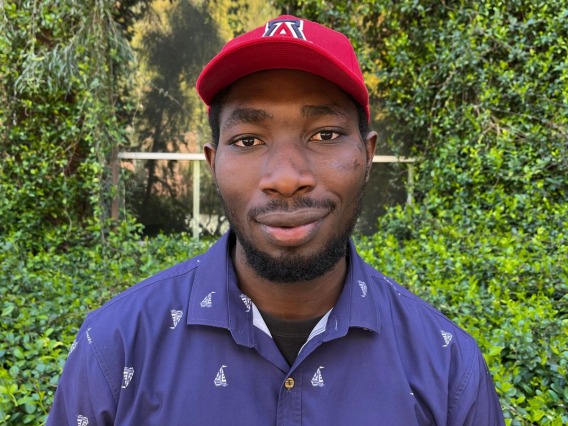
"I am thrilled to be given the opportunity to participate in this incredible research experience that will allow me to work, learn, and engage with local communities to better understand how climate change is affecting their access to quality water and the prevalence of Vibro cholerae in order to help develop adaptation and mitigation interventions."
Program of Study: MS Environmental Health Science
Site: Muhimbili University of Health Allied Sciences (MUHAS), Dar es Salaam, Tanzania
Research Title: Impact of climate change on Vibro cholerae and water quality.
Funding: Kent Campbell Scholarship Fund; RISE
Bio: Victor Okpanachi is a first-year master's student in the Environmental Health Science Program at the University of Arizona. He received his bachelor's degree in plant science and biotechnology from Kogi State University in Anyigba, Nigeria, in 2020. After completing his undergraduate program, he worked as a research assistant in the department for six months before embarking on a one-year national youth service. His research interests focus on climate change, water quality, and access. He hopes to gain deeper insight into how the lack of access to quality water due to climate change contributes to the incidence and prevalence of Vibrio cholerae in local communities and to assist in providing adaptation and mitigation strategies.

